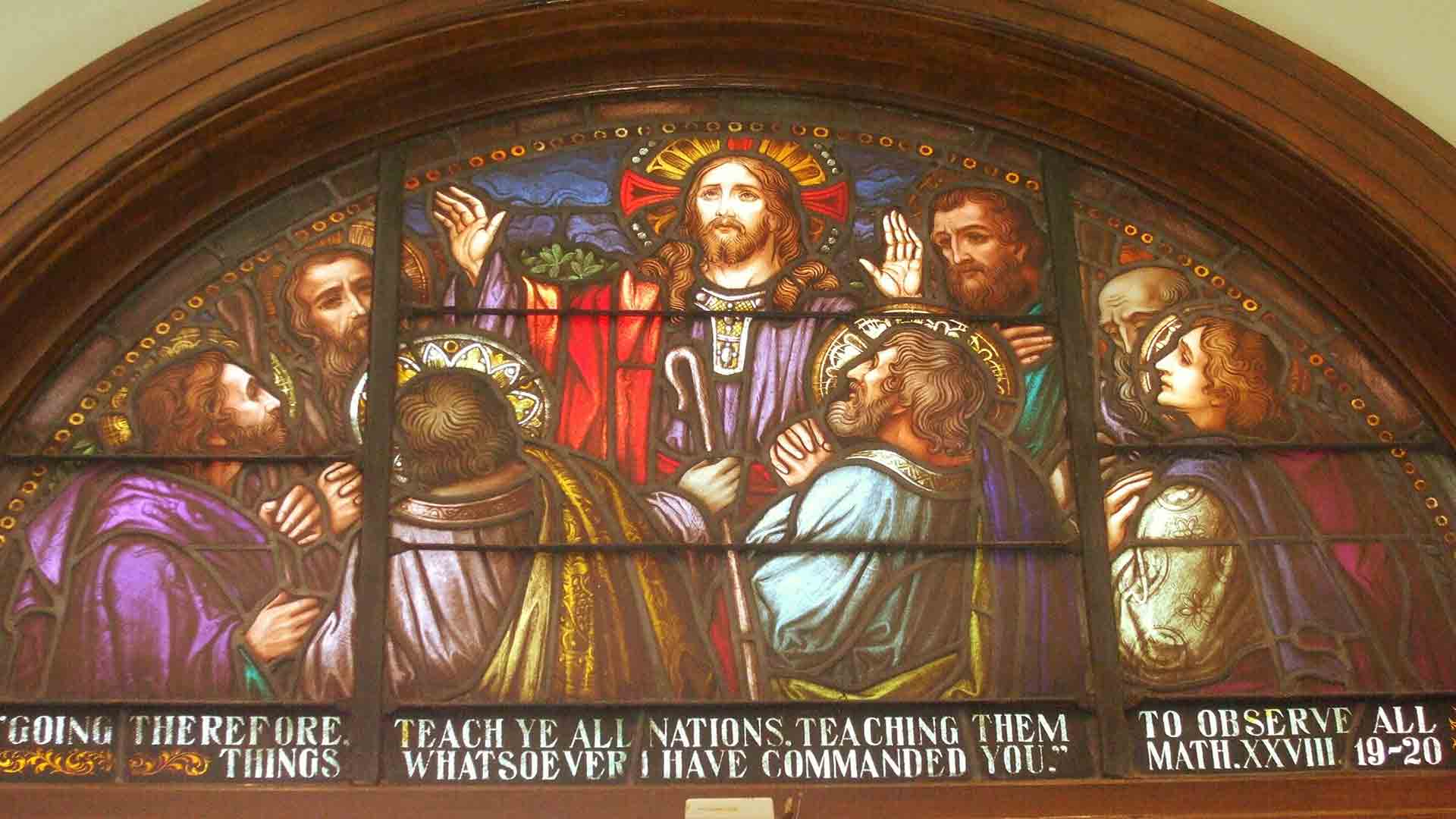As 21st century apostles, we too have to walk the talk
LENT 2020 - Day 38
Readings: Jer 20: 10-13; Ps 17: 2-4, 5-6, 7; Jn 10: 31-42
It's unbelievable how a prophet too has to undergo trials and tribulations like we do. Jeremiah describes his own so dramatically that some have called him "the weeping prophet". God had called upon him to prophesy and he did respond with a great sense of commitment. He spoke loud and clear of Israel's unfaithfulness to the laws of the covenant, as a result of which the kingdom would face famine; invaders would plunder Jerusalem and exile the people to a foreign land.
The text of the first reading is the last of Jeremiah's so-called confessions. It is in this one that he best translates the drama of his prophetic ministry. It is even as though Jeremiah suffers from a persecution complex; his accusations sound like the ramblings of a paranoid. But soon there is an overflow of ardour for God - "the Lord is with me as a dread warrior"- and his fears vanish into thin air. Truly, if God be with us who can be against us?
The sufferings of the Son of God weren't less agonizing. The Jews subjected our Lord to physical violence and verbal abuse. Whenever Jesus quoted the Scripture to assert His identity, some seemed ignorant or apathetic to His discourse. Of course, those in the know, like the rabbis and other learned men, deflected His arguments. So Jesus now expected them to judge Him at least by His good works. The populace didn't formally deny these but meanwhile charged Him with blasphemy, for which the Mosaic law prescribed death.
In a cutting rejoinder, Jesus quotes Psalm 82, in which God upbraids some judges for their unfair judgements, saying, "You are gods, sons of the Most High, all of you". Jesus' point is that if this psalm calls them gods and sons of God, why won't God also call Him so whom He sanctified and sent into the world? But then, who can compel others to believe? Jesus revealed that He was God, but though they had ears they didn't listen to the revelation of the mystery of the Incarnate God.
That wasn't all. Since the testimony of Scripture didn't work out, Jesus returned to the argument of good works: "Though you do not believe me, believe the works." He knew that this would eventually take them to the Father in whose name Jesus accomplished those works. Besides, it is said that against facts there are no arguments. But still to no avail. The Jews stupidly rejected both His words (the Scriptures) and His works (prophecies and miracles), thus proving beyond doubt that they had closed minds.
Jesus worked yet another wonder. Although they'd sought to arrest Him, He escaped from their hands. And what's more, He did not stop preaching. There were others who needed Him, others ready to accept Him: those whom John the Baptist had prepared to accept Jesus were now waiting for Him across the Jordan. They remembered with nostalgia the truths of the faith that their catechist had taught them. They realised how right he was about his cousin Jesus Christ, and many believed in Him there and then.
So what is the take-away for us twenty-first century apostles? One, that a seed that is sown will one day bear fruit. The apostolate of presence is a great reality: if we show our readiness and do our best, God does the rest. Second, we should not feel discouraged or tire of doing our duty, in word or deed. Third, deeds are more eloquent than words. Or, according to a much-quoted adage attributed to the Italian saint Francis of Assisi: "Preach the Gospel always, and if necessary, use words." Well, se non è vero, è ben trovato! The long and short of it is that we have to walk the talk.
He pulls us back from the brink
LENT 2020 – Day 32
Readings: Jer 11: 18-20; Ps 7: 2-3, 9-10, 11-12; Jn 7: 40-52
There’s a sense of urgency in the readings of today. The second major prophet, Jeremiah, registers the first of his notable confessions. He describes his sufferings and anxieties vis-à-vis the mission he has to fulfil. The Lord lets him know the enemy traps, in the wake of his vehement discourse in the temple. And much as his countrymen misunderstand him about divine punishment that is imminent, Jeremiah expresses his hope in God.
The Gospel indicates that Our Lord’s Passion is round the corner. There is an air of suspense, particularly since there is a striking division in public opinion. The people, the officers commissioned to arrest Jesus, and even Pharisee Nicodemus side with Jesus. They declare that no man has ever spoken like Him before, and insist that he deserves a fair trial.
The rest of the authorities, however, would hear nothing of that. They accused the crowd of ignorance of the law. But it is clear that they who claimed to know the law had conveniently suppressed the fact that Jesus was indeed the Messiah. Their intention was to simply eliminate Jesus; He was a thorn in their side.
Even in our time, don’t people sideline those who speak the truth? Don’t these suffer for upholding their principles? Evil-mongers hate them because they, even if unknowingly, destroy their designs. That is how fallen human nature is; there is no escape. Nonetheless, we must speak, tactfully, which doesn’t mean feebly. Above all, we have to trust in the Lord, saying, “Lord God, I take refuge in You.” He died in order to save us; He always pulls us back from the brink.
It's not lonely at the top, we have the Lord by our side
Lent 2020 – Day 13
Readings: Jer 18, 18-20; Ps 30, 5-6, 14, 15-16; Jn 6, 63; Mt 20, 17-28
'It’s lonely at the top' is perhaps what Jeremiah felt at first when spurned by his people. Our parents and our God feel the same when we recklessly reject their plans and even rebel if things don’t turn out to our liking. Although we're free to propose, we must let God dispose: this technique is not only a stress-buster but also a herald of great blessings.
When Calvary was just round the corner, Jesus kept spoke to his disciples about wielding responsibility with care and concern for the people. “Whoever would be great among you must be your servant… even as the Son of man came not to be served but to serve,” said He.
Don’t leaders get involved in petty squabbles and at times people envy their power? Whether leaders or followers, let’s realise that all have a cross to bear; life shouldn’t be only about self but also about helping the other.
God-given tasks do entail responsibility but when we trust in the Lord, saying “Your words, Lord, are spirit and life,” we find ourselves smiling and never feel lonely at the top.


